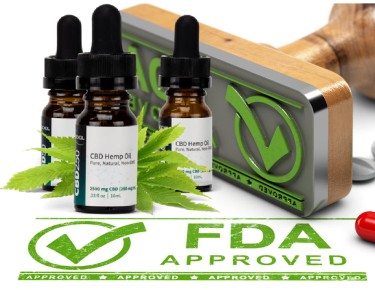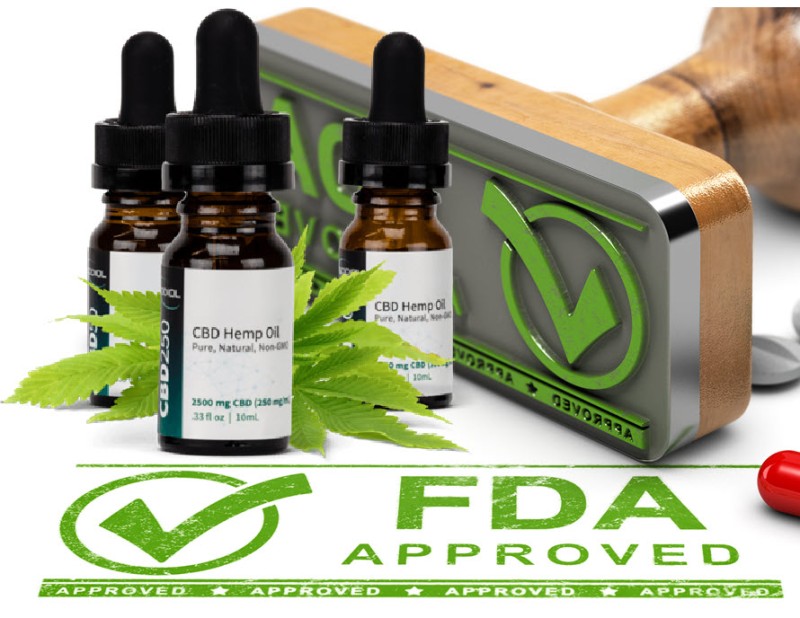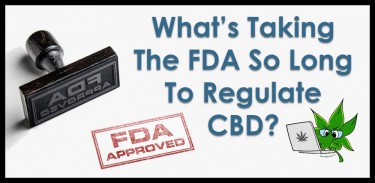
FDA says it’s months away from Hemp derived Cannabinoid Regulations after delaying for years
Our wonderful overlords hath said that they are only “months” away from coming up with some regulatory processes for hemp derived cannabinoids – despite hemp and related cannabinoids being legal since 2018.
But hey – 5 years for the government is “lightening speed”.
Marijuana Moment recently did an in-depth overview of everything that happened. But since nobody has any time to read those long form content – I decided to provide you with a quick summary of everything so we can all be on the same page.
After the summary, we’ll take a look at why the FDA coming up with regulations nearly 5-years after legalization simply isn’t “good enough” and that there needs to be a major overhaul of these federal agencies.
First however, let’s take a closer look at what the FDA actually said.
Here’s a Summary of the Article;
The Food and Drug Administration (FDA) is currently carrying out a scientific review of marijuana that will inform its federal scheduling status. Top officials at the FDA say they are months away from releasing a regulatory assessment for hemp-based products like CBD. The FDA has faced significant criticism in recent years over the lack of rules allowing for the marketing of cannabis in the food supply or as dietary supplements. Hemp and its derivatives were legalized under the 2018 Farm Bill, but the agency has long maintained that more research must be done, or Congress should step in again, before regulations for consumable cannabinoid products are finalized.
In interviews with the Wall Street Journal, FDA Principal Deputy Commissioner Janet Woodcock and two other officials steering the agency’s cannabis policy, Patrick Cournoyer and Norman Birenbaum, discussed next steps. Woodcock said, "Given what we know about the safety of CBD so far, it raises concerns for FDA about whether these existing regulatory pathways for food and dietary supplements are appropriate for this substance.” It’s possible that the FDA may ultimately punt to Congress, as officials have previously said could be necessary in order to forge a regulatory pathway for the plant.
Meanwhile, the market for hemp, CBD and more novel intoxicating cannabinoids like delta-8 THC is already widespread across the country. As such, FDA officials seem to increasingly recognize the urgency of rulemaking. Birenbaum, a former state marijuana regulator in New York and Rhode Island, said, "I don’t think that we can have the perfect be the enemy of the good when we’re looking at such a vast market that is so available and utilized. You’ve got a widely unregulated market.”
The FDA officials said that a couple of points they are assessing concern whether CBD can be used safely in the long-term, and what impacts consumption might have during pregnancy. The rise in popularity of delta-8 THC products, which the Drug Enforcement Administration (DEA) says are not included in the CSA and are in fact unregulated.
Source: Marijuana Moment
The FDA’s History of Anti-Cannabis Bias
It is important to note that the Food and Drug Administration (FDA) has historically had a bias against cannabis and has been slow to recognize the potential therapeutic benefits of the plant. This is likely due to the longstanding federal prohibition on cannabis, which has made it difficult for researchers to study the plant and for the FDA to regulate it as a medicine.
Despite this, there is increasing evidence to suggest that cannabis has the potential to be an effective treatment for a wide range of medical conditions, including pain, inflammation, seizures, and mental health disorders. In recent years, the FDA has approved several cannabis-derived medications, including Epidiolex, a medication used to treat epilepsy, and Marinol, a medication used to treat nausea and vomiting in cancer patients.
However, the FDA has also been criticized for its slow pace in approving additional cannabis-derived medications and for its strict regulatory approach to cannabis-based products. Some critics argue that the FDA's bias against cannabis has hindered the development of new treatments and has made it difficult for patients to access the medications they need.
In recent years, there has been a growing movement to reform cannabis laws at the federal level and to allow for the wider use of cannabis in medicine. This includes efforts to reschedule cannabis under the Controlled Substances Act, which would allow for more research on the plant and for the FDA to regulate it more effectively.
Despite these efforts, the FDA has remained hesitant to fully embrace cannabis as a medicine and has been slow to approve new treatments. As a result, many patients are forced to rely on unregulated products or to seek out cannabis treatments in states where it is legal.
This is largely due to the FDA/DEA Catch-22.
The FDA-DEA catch-22 refers to the regulatory conflict between the US Food and Drug Administration (FDA) and the Drug Enforcement Administration (DEA) when it comes to the approval and scheduling of cannabis-based products. Cannabis is currently a Schedule I controlled substance under the DEA, which means it is considered to have a high potential for abuse and no accepted medical use. This classification makes it difficult for researchers to study the potential medical benefits of cannabis and for cannabis-based products to be approved by the FDA as a medication.
However, the FDA has the authority to approve medications and regulate the safety and effectiveness of products, including those that contain cannabis or its derivatives. In order for a cannabis-based product to be approved by the FDA as a medication, it must go through the same clinical trial process as any other medication, including demonstrating its safety and effectiveness through rigorous scientific research.
The catch-22 arises because the DEA's scheduling of cannabis as a Schedule I controlled substance makes it difficult for researchers to conduct the necessary clinical trials to meet the FDA's approval standards. This creates a regulatory barrier that has led to a lack of FDA-approved cannabis-based medications and has frustrated advocates who believe that the potential medical benefits of cannabis have not been fully explored.
Of course, this is all bullshit too. Mainly because there studies on cannabis.
It is difficult to accurately estimate the number of studies that have been published on cannabis, as it depends on how "cannabis" is defined and what types of studies are included. However, there have been thousands of scientific studies on cannabis and its various components, including cannabidiol (CBD) and tetrahydrocannabinol (THC). These studies have covered a wide range of topics, including the effects of cannabis on the brain and body, its potential medical uses, and its potential risks.
The argument that there simply isn’t “enough studies” out there is one that doesn’t work. What we know is that cannabis is safer than alcohol on all metrics and alcohol is a celebrated substance within modern society.
If alcohol can be tolerated as a society, then it stands to reason that cannabis can too. Furthermore, it’s empirically false to claim that cannabis has no medical properties and a high potential for abuse. The fact that the DEA and the FDA keep on playing this game of “we need the other one to sign off on DE scheduling could probably be due to the Pharma-FDA connection.
There is a potential conflict of interest when pharmaceutical companies fund the Food and Drug Administration (FDA), as these companies may have a financial stake in the decisions made by the FDA regarding the approval and regulation of drugs. This can lead to a bias in favor of drugs developed by these companies, and may result in the FDA prioritizing the interests of these companies over the needs of patients.
For example, if a pharmaceutical company is funding the FDA and has developed a new drug, the FDA may be more likely to approve the drug, even if there are potential risks or concerns about its safety or effectiveness. This can create a situation in which drugs that may not be in the best interest of patients are approved and marketed, while other, potentially safer or more effective treatments are not.
Additionally, the FDA may be more likely to approve drugs developed by companies that are funding the agency, even if these drugs are not significantly different from existing treatments. This can create a monopoly for these companies, leading to higher prices for medications and limited treatment options for patients.
Overall, the potential for a conflict of interest when pharmaceutical companies fund the FDA can undermine the credibility and integrity of the regulatory process and may not serve the best interests of patients. It is important for the FDA to be transparent about its funding sources and to ensure that its decisions are based on the best available scientific evidence, rather than financial considerations.
However, considering that the FDA gets most of its funding from Pharmaceutical companies, there seems to be a clear conflict of interest.
Why are the FDA stalling on cannabis?
I don’t think however in this particular case that the FDA is stalling on hemp-derived cannabinoid regulations. Rather, I think that the entire US is on the verge of entering into the legal cannabis space. However, Pharma wants their share.
Therefore, the FDA is waiting for Congress to make a move, which could potentially happen this year. There is a lot of “talk” about reform, however, judging by 2022s performance – we don’t know if they are actually going to push it through.
However, I have a sneaky suspicion that when they do, there will be provisions in there that would directly benefit the pharmaceutical companies. If they try to DE schedule cannabis to Schedule II – we’ll know it’s a complete Pharma power grab.
In all likeliness, they will not do it since there are billions of private investment dollars tied into recreational cannabis and a Schedule II category would essentially close 95% of all current legal operations.
In all likeliness they remove it from the CSA – which would be the ideal situation. Nonetheless, the people who are currently dealing with cannabis and hemp derivatives simply are operating in a “wild west” situation. They have to hope that there isn’t any Federal agent with a hard on for busting people while lawmakers take their sweet time in setting up the frameworks.
We’ll see how the next few months play out!






